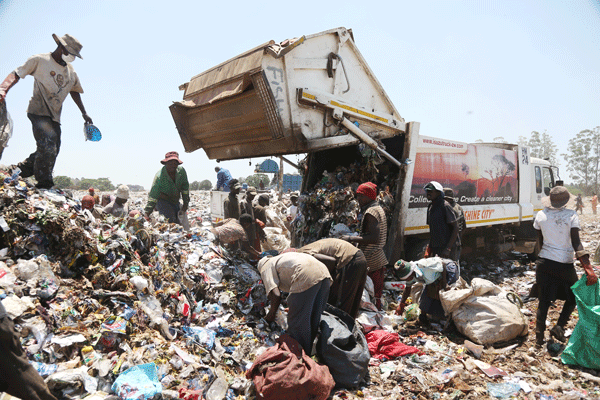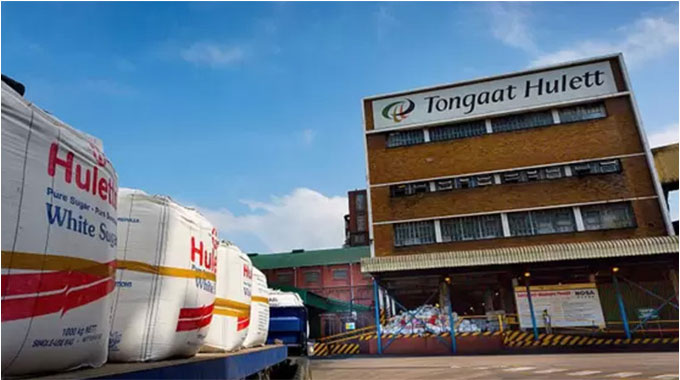Tongaat shareholders advised to sell, even for 1c per share
This follows the approval this month at a meeting of affected persons of the Vision Group’s business rescue plan, which will lead to a significant dilution in value for shareholders.
An analyst who did not want to be named said Tongaat’s shareholders are “being wiped out” by the Vision plan.
He said the lender group takes an about 50 percent “hit” on their debt and Vision indicated that shareholders get 2,7 percent.
However, the analyst said that is purely a mathematical outcome of Vision issuing the five billion maximum number of authorised shares that exist and existing shareholders retaining the 135 million shares that are in the offer, which is exactly 2,7 percent.
“Vision believes it can just blunt-force their way into issuing all the shares for a swap of debt without any shareholder approval or special resolution, and indicated that the remaining R3,6 billion in debt will remain on the balance sheet,” he said.
Tongaat’s business rescue practitioners (BRPs), Metis Strategic Advisors, confirmed on January 12, 2024 that: “The preliminary approval has become final due to the rights of shareholders not being affected and therefore no shareholder vote being required.”
The analyst added that trading creditors get five cents in the rand and “shareholders get absolutely nothing”.
“The 2,7 percent is an illusion, it’s zero. The reason simply is that they still keep R9 billion of debt on the balance sheet and many moons will be required to pay that up.”
The analyst said shareholders would be wise to sell their shares for one cent per share.
“At least then they get a tax deduction because of a capital loss, which is at least an 18 percent return through an offset from their capital gains from Sars (South African Revenue Service),” he said.
Shareholder activist, Chris Logan, said Tongaat shareholders will still have an interest in the group but it will be “worth next to nothing”.
However, Logan said until Vision and the BRPs report on the ratios and provide more information going forward, it was not possible to work it out what the shares are worth.
“It’s all guesstimates. Even if they told you how much debt they were going to convert into equity and how many shares they have versus the existing shareholder base, it would still be very difficult because you’d still then have to work out what the business is worth going ahead,” he said.
“Rudland resolution” remains in place Charles Liasides, a director of Artemis Investments, which as at November 3, 2023 owned 20,1 million shares in Tongaat Hulett or 14,878 percent of the group’s issued shares, said shareholders will be “horribly” diluted by the Vision plan.
Liasides said that when trading in Tongaat shares on the JSE was suspended, the 135 million listed shares were trading at about R4 per share, which translates into about R500 million, but Vision wants to convert about R4,1 billion in debt into shares.
He said a resolution was approved by Tongaat shareholders to extend the share capital of the group when Zimbabwe’s billionaire Rudland family were trying to take over the company and the number of shares that can be issued was increased to five billion.
“That resolution remains in place so all Vision has to do is to take that accumulated supposed equity they have put into Tongaat, which has been borrowed in various places, and convert it into shares and then shareholders are totally diluted and out of the picture.
“The whole process of increasing Tongaat’s issued shares to that level will result in an automatic massive dilution of existing shareholder value,” he said.
Liasides said shareholders get left with nothing because the business rescue plan is only ever voted on by the creditors.
He admitted there are reasons for this but one of the negatives of it is obviously that “the shareholders have no say and stand to be horribly diluted, which has happened in this instance”.
BRPs “had better options” Liasides said the whole business rescue process was handled “atrociously” and there could have been so many alternatives and better options, which they suggested to the BRPs and would have helped the company and created more shareholder value.
However, Liasides said former Tongaat CEO Gavin Hudson was adamant he wanted to do a deal with the Rudland family.
Liasides said that eventually, thanks to the efforts of his colleague Dave Woollam, they frustrated that deal at the Takeover Regulation Panel (TRP) at literally the last minute on appeal.
But Liasides said it was not necessary for this to happen and so much time was wasted on the Rudland family deal, which could have been avoided because they were totally unsuitable buyers.
Liasides said at the early stages of Tongaat’s financial problems, the group was approached by an interested buyer about the sale of its Zimbabwe and Mozambique operations.
He said in those days the price being talked about was roughly R4 billion for each of those operations, which would have put Tongaat in a much better financial position at that stage, particularly as all the interest on its debt had accrued over the previous three or four years and the extremely cash-generative starch business was sold to Barloworld.
Barloworld in February 2020 announced the acquisition of the starch division, now renamed Ingrain South Africa, for R5,35 billion.
The Industrial Development Corporation (IDC) provided the post commencement finance (PCF) for Tongaat’s business rescue process but with the condition that the group must remain intact and none of its operations may be sold off.
Liasides said this condition did not make any business or financial sense. He said that in terms of the Vision plan, the bankers in the lending group had to take a haircut.
Not all the details of this aspect of the proposed transaction have been released, but according to analysts, the bankers had about R7 billion of debt and took a haircut of about R3,6 billion.
Liasides stressed that if a deal had been done earlier for Tongaat, or if its Mozambique operations were sold, it would have resulted in a considerably better deal for all.
If the BRPs had then engaged and sold the Zimbabwean operations separately, it would have left Tongaat’s entire South African operation almost totally ungeared, he said.
“With all the land and sugar mills and operations, Tongaat would have been in a stronger position. From a development perspective, all the land north of Durban is predominantly held by Tongaat and there is underlying good value there.
“Now, at the end of the day shareholders are horribly diluted and the final outcome is poor for the lenders, trade creditors and shareholders. But it obviously satisfied the IDC,” he added.
“The approval of the Vision plan is disappointing for all the long-suffering shareholders, who ultimately paid the price for corrupt and incompetent leadership and poor oversight by the auditors.”
Tongaat has been in business rescue since October 27, 2022. Trading in its shares was suspended by the JSE on July 19, 2022 because of its failure to publish its financial results within the stipulated time period.
It is unclear when it will be able to publish its financial results and apply for the lifting of its JSE suspension. — Moneyweb.
-herald








